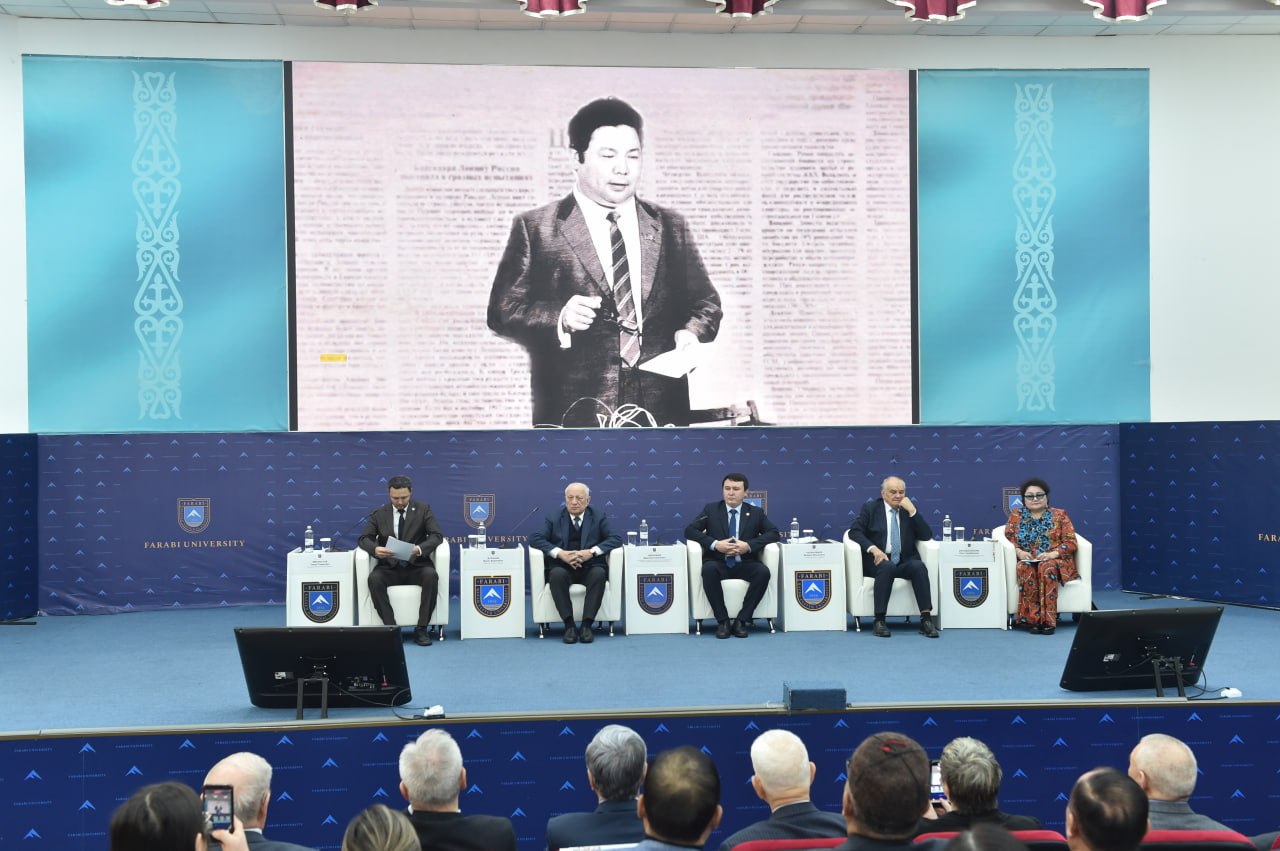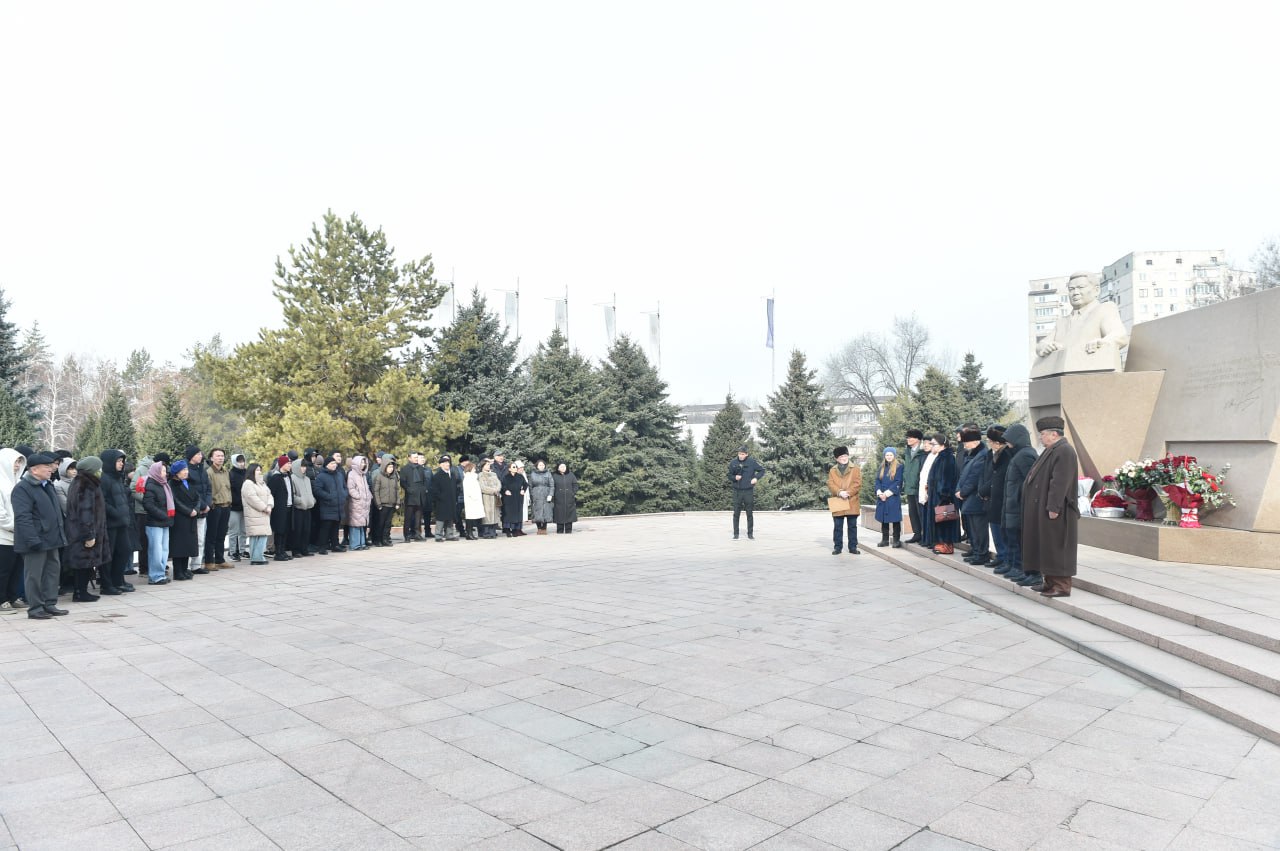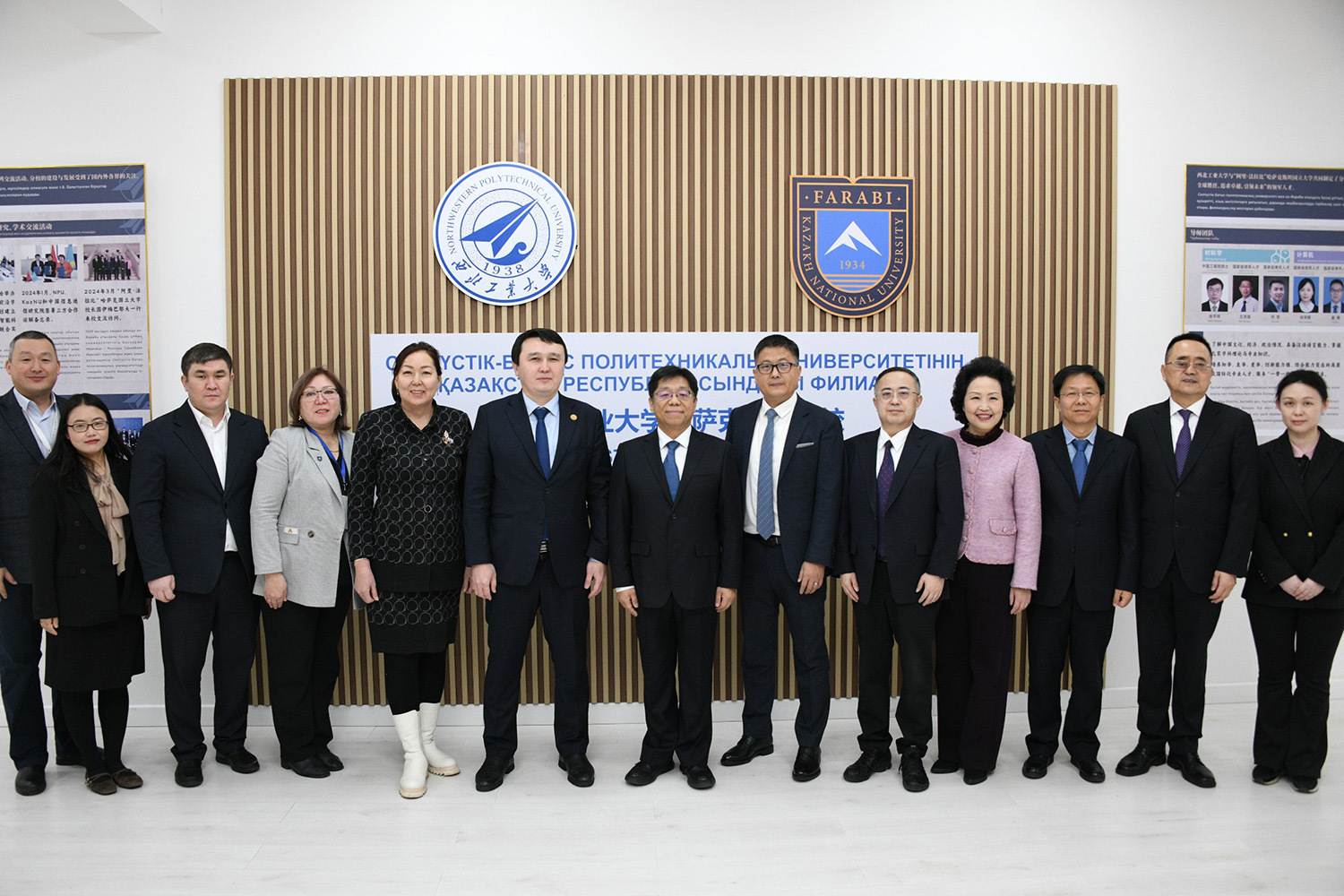Leadership lecture “Kazakhstan and the geopolitics of the South Caucasus”
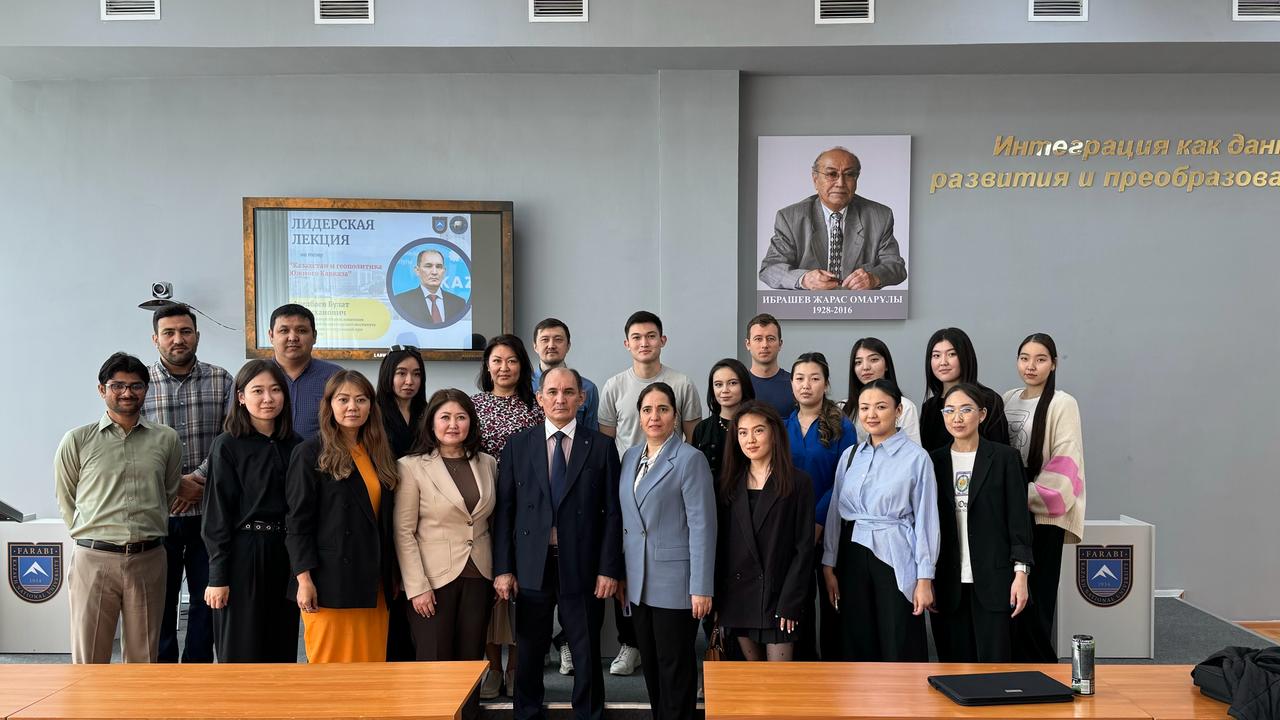
On May 2, 2024, the Department of International Relations and World Economy of the Faculty of International Relations of the Al-Farabi Kazakh National University organized a leadership lecture by the chief expert of the Kazakhstan Institute for Strategic Studies under the President of the Republic of Kazakhstan Bulat Alimkhanovich Auelbaev on the topic “Kazakhstan and the geopolitics of the South Caucasus”.
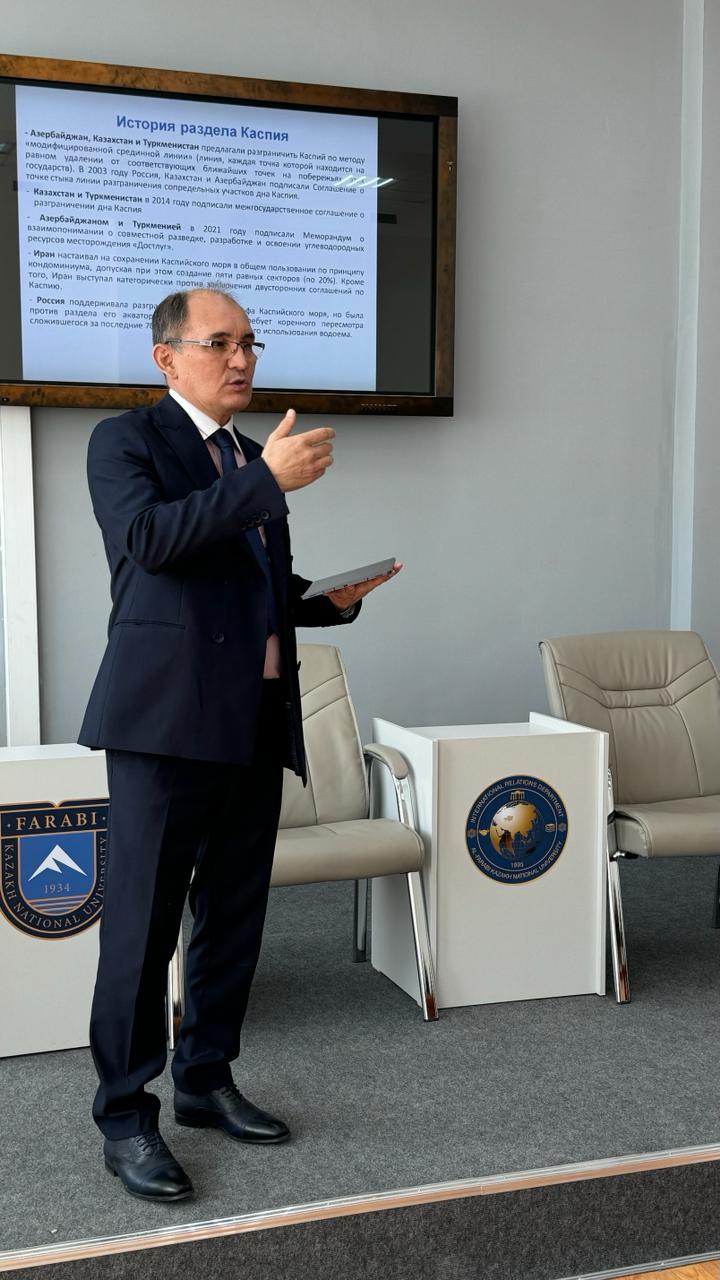
The lecture was attended by the Head of the KazISS Representative Office in Almaty, Asel Nazarbetova, Dean of the Faculty of International Relations Leila Delovarova, Head of the Department of International Relations and World Economy Gulnara Baikushikova, Director of the Center «Questioning regional affairs» Adilbek Yermekbaev, PhD students, master students and graduate students.
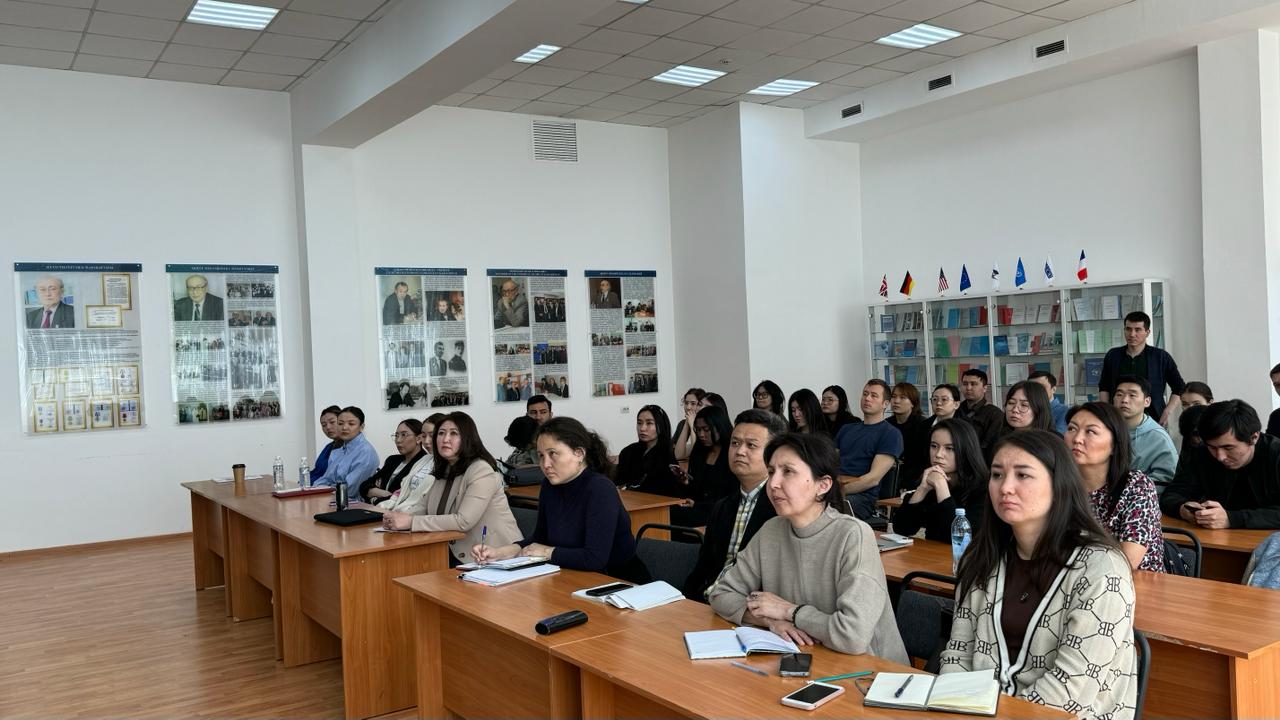
During the lecture, various aspects of the relationship between Kazakhstan and the states of the South Caucasus, issues of the legal status of the Caspian Sea, Kazakhstan and the geopolitics of the Caspian Sea, the geopolitics of transport corridors, and the Karabakh issue were discussed.
Bulat Auelbaev shared his deep knowledge and professional experience, presented analytical conclusions and forecasts on the development of the situation in the region.
Young scientists and PhD students studying at the faculty listened to the lecture with great interest. A meeting with such an experienced expert analyst gave them the opportunity not only to learn new facts and aspects in the field of geopolitics, but also to ask questions of interest, discuss current topics and express their opinions.
For PhD students, this was not only an opportunity to learn something new, but also an important step in the process of their scientific and professional development. A conversation with an experienced lecturer and a discussion of geopolitical issues opened new horizons and inspired further research and scientific work.
Such events play an important role in developing the professional competence of young scientists and contribute to the development of the scientific community.
.jpeg)

